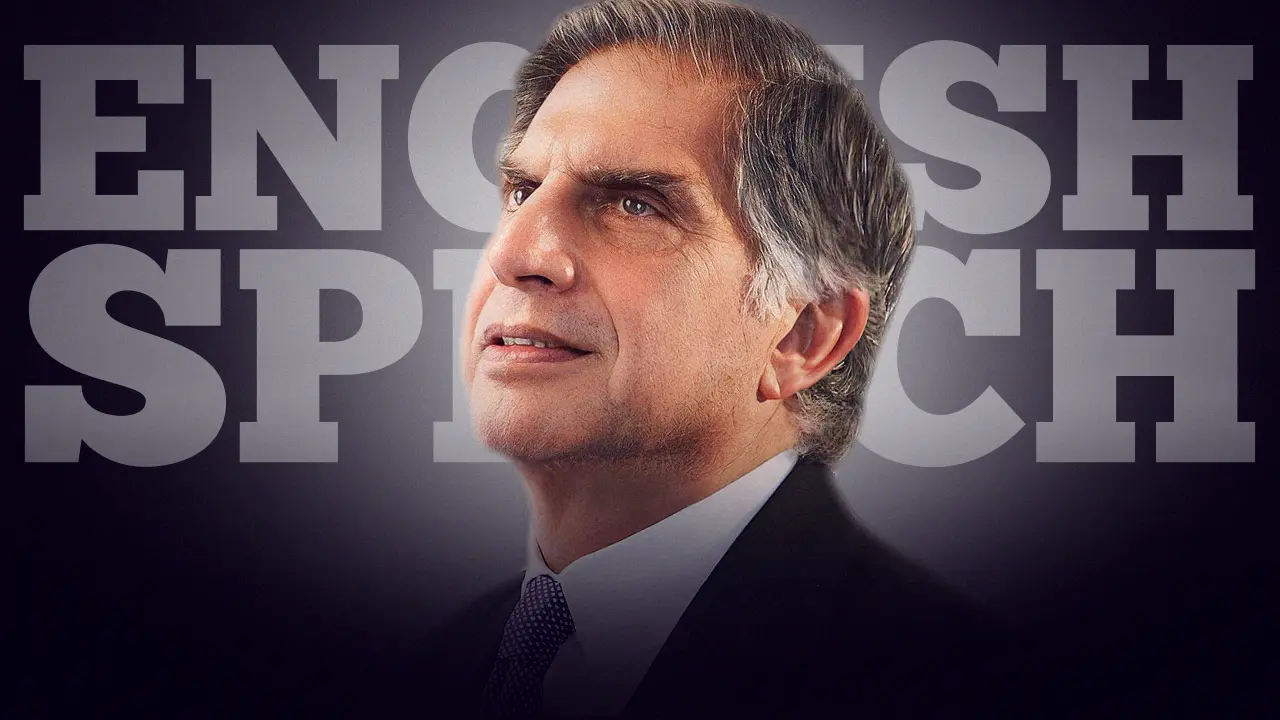Learn English with Mahira Khan. In this powerful 2023 National Youth Parliament speech, the Indian student calls for a “war against war,” highlighting compassion, forgiveness, and global solidarity. Study her inspiring words while improving your listening, vocabulary, and pronunciation.
Who This Speech Is For
English learners interested in global peace, international diplomacy, and youth empowerment.
Those inspired by student voices making global impact from local beginnings.
Intermediate to advanced learners looking to analyze persuasive speeches filled with values, history, and global awareness.
How This Speech Helps Your English
Learn advanced vocabulary tied to diplomacy, conflict resolution, and global cooperation.
Practice identifying thematic transitions and persuasive devices.
Observe how repetition, analogy, and historical references are used to build a powerful case.
See how emotional appeal and personal conviction elevate formal public speaking.
Why This Speech Matters
Delivered at India’s National Youth Parliament Festival and viewed over 1.2 million times.
Showcases the power of youth voices in global peace dialogues.
Highlights India’s vision of “Vasudhaiva Kutumbakam” and its role in multilateral diplomacy.
Offers a real example of student leadership, cultural pride, and universal values.

”We need a real war against war.
Download available
for Plus Members
PDF Transcript
Access the full speech in an
easy-to-read PDF format.
Audio Version
Listen and download clear,
high-quality MP3 recordings.
English Lesson
Includes vocabulary
and grammar practice.
Offer ends in:
Offer ended.
Transcript
My warm greetings to dignitaries. I am Mahira Khan from Chhattisgarh and I am here to speak on the topic of peace building and reconciliation ushering in the era of no war.
Taking pride in India’s history is one of the parts prongs given by the Prime Minister in the age of Amrit Kal. And looking back at history, it is a proof that India has always been a harbinger of peace. No war does not mean that we have no reason to fight war. It only means that we give importance to peace by following values of compassion and forgiveness.
It was the value of compassion that even after winning the war in Kalinga, Samrat Ashok decided to never wage a war and spend his entire life to preach the message of peace to countries as far as Greece. It was the value of forgiveness that even after the British sent our soldiers to world wars and our farmers to famines, Mahatma Gandhi still chose Ahimsa and Satyagraha for independence. Taking inspiration from India, Nelson Mandela also chose to forgive the apartheid regime in South Africa.
My dear audience, like this year’s theme, India for the World, India not only preaches, but also practices Vasudev Kutumbakam. In India’s G20 presidency, we advocate for a multilateral world in which no one country dominates another country. When China dominated Indo-Pacific, India rushed to help and support ASEAN countries. It acted east. When Sri Lanka needed loans, India was the first to give assurance to IMF. It showed that we believed in neighborhood first. And when Turkey-Syria were hit by deadly earthquakes, India rushed for their aid. It showed our brotherhood.
Remember, in 1945, after testing the first atomic bomb, Oppenheimer quoted from Bhagavad Gita, “Now I have become death, the destroyer of worlds.” And soon after that, the bombings in Hiroshima and Nagasaki, it was proved that the world does not need a war for peace, but it only needs one war, and that is the war against war itself, exactly what Mahatma Gandhi used to preach. “We need a real war against war.” And that’s why all of us need to unite for one single cause, our planet Earth.
The conflicts in West Asia, Africa, and the constant quest for world dominance between USA and China are doing no good for sustainable and equitable development. And this is worse even in the post-COVID era, something which we cannot afford. And in this circumstance, the world looks at India to find peaceful negotiation and conciliation in the midst of Russian-Ukraine war.
As the voice of Global South, we believe that few rich countries which have caused maximum war and pollution in the last century should pay for their mistakes by helping and not holding back technologies from poor countries. I understand that we might be divided by borders, but we believe that our culture, sports, and ideas could unite us.
And in this condition, the world looks at International Solar Alliance for an equitable solution to green energy transition. Our jowar, bajra, and ragi are being celebrated as superfoods in world today. And the world looks at Ayush for a healthy lifestyle.
My dear audience, when one youth from Naxal-affected area of Abujmar in Chhattisgarh can strive and participate in international football. It inspires so many of us to strive for a home that is free of conflict and full of opportunities and growth. In us, in each of us lies immense ability to solve any internal or external conflicts through peace, passion, and compassion.
Thank you so much.






